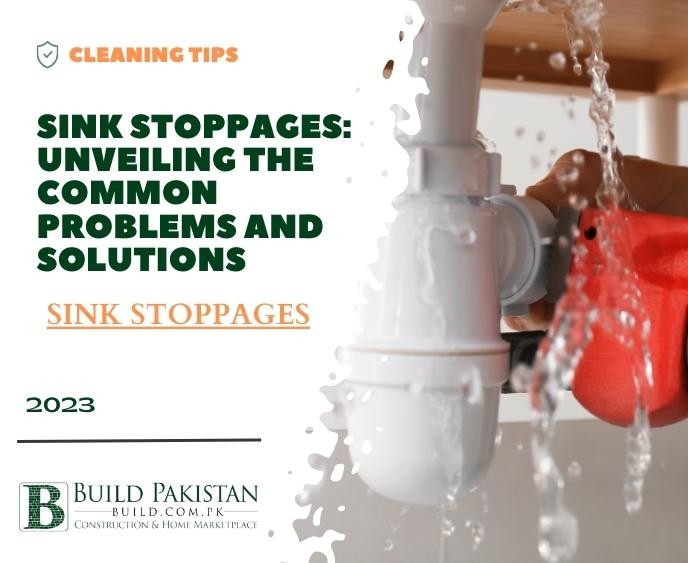Sink Stoppages: Unveiling the Common Problems and Solutions

Introduction:
A functioning sink is an essential component of
any modern household, catering to various daily tasks from washing dishes to
personal hygiene. However, even the most reliable sinks can encounter issues
that hinder their functionality In this comprehensive blog, we delve into the
realm of sink stoppages—unveiling the common problems that can cause sinks to
stop working and exploring practical solutions to tackle these issues. From
clogged drains to leaky faucets, we embark on a journey to troubleshoot the
problems that can disrupt the seamless operation of sinks.

Clogged Drains
One of the most prevalent issues that can
bring a sink to a halt is a clogged drain. Various factors contribute to clogs:
Food Debris:
In the kitchen sink, food particles, grease, and
oil can accumulate over time, leading to slow drainage or a complete blockage.
Hair and Soap Scum:
Bathroom sinks are susceptible to clogs
caused by hair, soap scum, and toothpaste residue.
Solution:
Use a plunger or a drain snake to dislodge the
clog. Preventive measures like using drain screens and avoiding pouring grease
down the drain can mitigate future clogging issues.
Leaky Faucets
A leaky faucet not only wastes water but can
also disrupt the smooth functioning of a sink:
Worn-out Seals:
Over time, the seals and gaskets inside the
faucet can wear out, leading to leaks.
Loose Connections:
Loose connections and worn-out washers can
cause water to seep around the faucets base.
Solution:
Replace worn-out seals, gaskets, or washers.
Tighten loose connections and use thread seal tape to ensure a watertight seal.
Low Water Pressure
Low water pressure can impede the
efficiency of a sink, making tasks like washing dishes or brushing teeth
frustrating:
Mineral Buildup:
Over time, mineral deposits can accumulate
inside the faucet's aerator, restricting water flow.
Pipe Issues:
Corroded or blocked pipes can contribute to
reduced water pressure.
Solution:
Clean the aerator by soaking it in vinegar to
dissolve mineral deposits. If pipe isses are suspected, consult a plumber to
inspect and address the problem.
Strange Odors
Foul odors emanating from a sink can disrupt
the comfort of a space:
Rotting Food:
In kitchen sinks, food particles stuck in the
drain can emit unpleasant odors.
Sewer Gases:
If the sink's P-trap (a U-shaped pipe) is dry or
damaged, sewer gases can escape into the room.
Solution:
Run hot water down the drain to dislodge trapped
food particles. Ensure that the P-trap is properly sealed and filled with water
to prevent sewer gas odors.
Slow Drainage
A sink that takes longer than usual to drain
can hinder daily tasks:
Clogs:
Partial clogs caused by debris, hair, or soap scum can
result in slow drainage.
Ventilation Issues:
In some cases, inadequate venting can
cause airlock, impeding proper drainage
Solution:
Clear clogs using a plunger or drain snake. If
ventilation is suspected to be the issue, consult a professional to ensure
proper venting.
Conclusion:
Sinks are fundamental to our daily routines, and
encountering problems that impede their functionality can be frustrating. From
clogged drains to leaky faucets, understanding the common issues that can cause
sink stoppages empowers homeowners to take proactive measures. By implementing
appropriate solutions, individuals can ensure that their sinks operate
seamlessly, enhancing the comfort ad efficiency of their living spaces. From
regular maintenance to timely repairs, the journey to troubleshoot sink
problems is a testament to the importance of a well-maintained and functional
household infrastructure.









